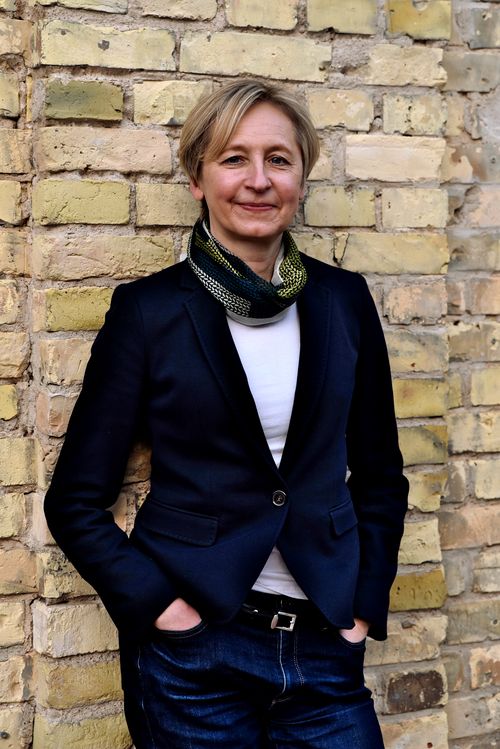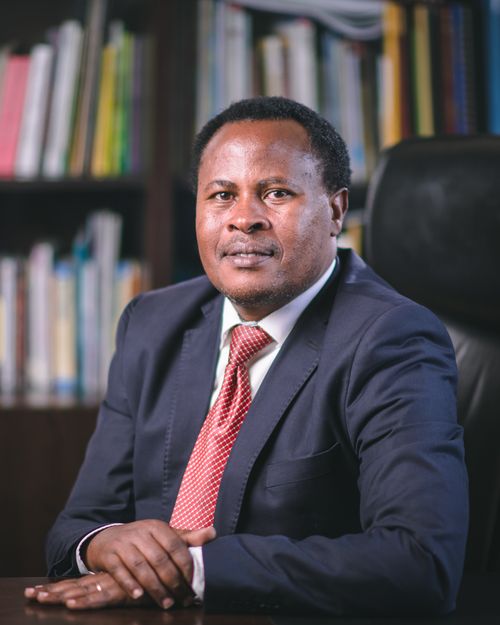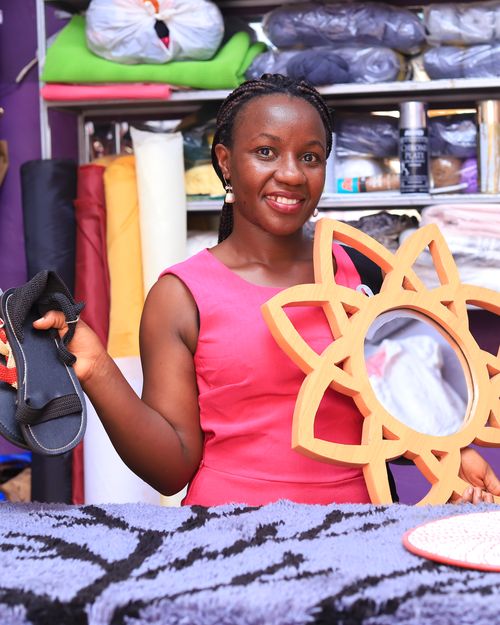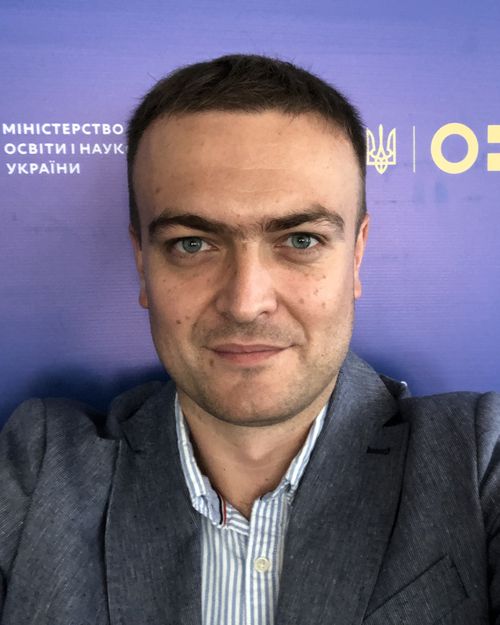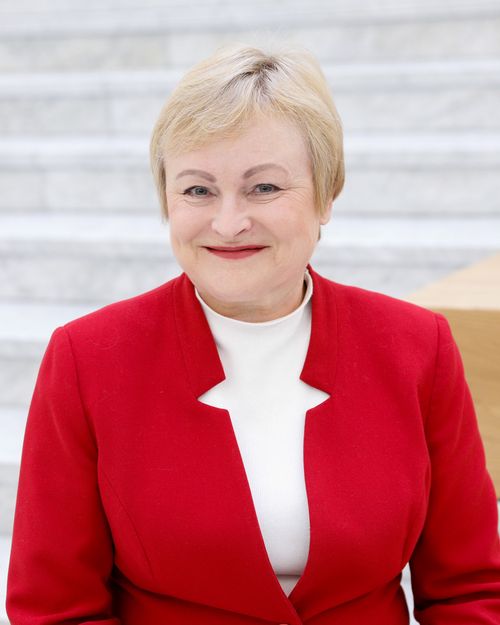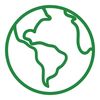Public libraries contributing to community economic wellbeing
Kenya - Meru Public Library / Winner 2018
“Young people have the mentality that farming is for old people. They do not think farming is cool,” says Richard Wanjohi, head of Meru Public Library. The library is changing young people’s attitudes to farming, and opening up new avenues for income generation by training them to use ICT, teaching them business skills and then allowing them to work on a 100 square metre farm, which the library manages. “We start with quick growing crops - kale, capsicums and spinach - so our learners can see results,” said Richard. The library also connects the young people to online information services for farmers. “I have been able to put my family land into good use to get better produce. That was made possible through the skills and ICT connection to farming,” said one young farmer.
Philippines - Butuan City Library / Winner 2018
Every year, over two million Filipinos travel abroad to earn higher wages so that they can help support their families back home. “We call them our ‘modern heroes’ for helping our economy with their remittances,” said Jessica Clarito, head of Butuan City Library. In partnership with the Philippine Overseas Employment Administration, the library’s e-government support service and computer literacy training has helped over 10,000 people with online applications for Overseas Employment Certificates. “This is already my fourth year under a six-year contract as an Overseas Filipino Worker in Dubai. I used to go to Manila just to get my Certificate, but now it is much closer and the librarians will help you on what you need to do,” said Shereen, who works as a Health Technician in Dubai.
Serbia – Belgrade City Library / Winner 2012
This library’s financial literacy training is helping students, young adults, families and pensioners to manage their money wisely and save for the future. In addition to providing financial literacy training, the library established the ‘Novcici’ (‘Coins’) website, which gives practical advice about budgets, banks, credit and investments. The service is extremely popular. In the period 2010/12, 3,500 high school students attended financial literacy workshops in the library, and almost 100 people a day visited the website. “I visit my library’s Novcici website every time I have a dilemma about my finances,” said Doroteja Kovacevi, a successful saver.
Public libraries contributing to community health
Brazil - ‘Argentina Lopes Tristão’ library / Winner 2018
This library, in Domingos Martins, is changing the lives of vulnerable women suffering from depression through an ICT training programme, in which young people do the training. The course lasts 90 hours, covering Microsoft applications (Word, Excel and PowerPoint) and how to use the internet. “The basic computer course in the library has changed my life. I used to live without perspectives, in a vulnerable situation, and I never imagined that I could learn so many good things. Now I know I can. It is as if a new world arises. I have gone back to school and I will not stop studying,” said Lucineia Helena Tavares.
Romania - ‘Gh.Asachi’ County Library Iași / Winner 2012
“From the bottom of my heart, I thank the library that taught me how to save somebody’s life!” said Carmen Pasat, teacher at High School ‘Miron Costin’. ‘Gh.Asachi’ County Library in Iași trains librarians in a network of 86 public libraries across Romania in First Aid skills, and they in turn offer First Aid workshops in their communities. The library partners with the Red Cross, hospitals and the ambulance service. Health professionals and ambulance staff volunteer to give lectures and help manage an online training course provided through the library’s website. In just over a year (2011/12) the library trained over 90 librarians in the network, who trained over 2,000 people in vital First Aid skills.
Uganda - Hoima Public Library / Winner 2012
The number of library users seeking health information more than doubled after Hoima Public Library introduced its health service in 2010, according to an impact assessment survey conducted in 2012. The survey also found that 20% more mothers who use the library now have mosquito nets in their homes, and sleep under them regularly. The service provides free access to the internet in an e-health corner, and, from 2010-2012, working with the Red Cross, NGO’s and local hospitals, trained over 400 health workers, 2,000 students and 700 members of the general public to use the internet to access reliable health information. “The library’s ICT health corner guides our patients and also provides access to programmes like Skype, Twitter, Facebook and email, which are all very important in service delivery,” said Brian Macoine, clinical officer, Hoima Regional Referral Hospital.
Public libraries contributing to social inclusion
Croatia - Public Library ‘Fran Galovic’ Koprivnica / Winner 2012 and 2018
The library is breaking down social barriers and stigma between Roma and Croat communities through activities, including ICT training, that bring children and youth from the two communities together in the library. The activities increased library membership from Roma communities and drew praise from the (then) Deputy Mayor of Koprivnica, Vesna Želježnjak, who said: “The library’s training programme is a significant contribution towards integration of the Roma population.” In 2018 the library introduced another service to promote social inclusion - helping seniors to use their smartphones to improve their quality of life. Three high school students volunteered to conduct training and provide individual consultations for learners. “My family says I’m smarter now!” said 70-year-old Nada Dombai, a newly-skilled smartphone user.
Kazakhstan - ‘Oralkhan Bokeev’ City Library of Ust-Kamenogorsk / Winner 2019
By teaching digital skills to young people living with disabilities the library is helping them to become more active, confident and independent. The majority of the library’s trainees are people with neuro-psychological disability and cerebral palsy. Librarians develop training programmes focused on the personal needs and interests of each learner. Two young motorcycle enthusiasts inspired fellow trainees to take an interest in researching the internet to learn more about different brands and models, the history and production of motorcycles and legal issues related to vehicle ownership. “Now I understand different brands and even made a short online video about my favourite bike models,” said Sasha Gerasimov.
Uganda - Kitengesa Community Library / Winner 2012
This library, which serves rural communities in Masaka District, is playing a vital role in ending the isolation of deaf children, who for the first time are sharing space with hearing children in the library, taking part in lessons in computer use and English language, playing games and using Skype to communicate with friends in Canada. The library also established a Ugandan sign language club, in which deaf students teach sign language to hearing children. “Through the library, deaf students learn from other community members by interacting with them,” said Lydia, who is one of 100 students from the Good Samaritan School for the Deaf.
Public libraries responding to COVID-19
Kenya - Nakuru Public Library / Winner 2021
When Kenyan schools closed due to COVID-19 in March 2020, Government guidance was to move teaching online. However, most teachers in public (state-run) schools had not yet integrated computers into their classes, and lacked digital skills. The library decided to address this situation by raising teachers’ awareness about free online teaching and learning tools, like Zoom, Microsoft Teams, Google Classroom and 9 | EIFL 2021 Annual Report Moodle, and training teachers to use these tools. By the time lockdown restrictions were lifted just under a year later, the library had trained 30 teachers at 10 schools: “I am now able to use the internet to transmit knowledge to students. My students can confidently access e-resources and submit assignments online,” said Doreen Nyamosi, a teacher at Nakuru Central Secondary School.
Peru - Main Public Library of Lima / Winner 2020
“This is a blessing for me since the pandemic is there, and I cannot go to the library.” When the country went into lockdown, the library moved services online. However, librarians were worried about people who did not have access to the internet, and might be isolated and lonely. They came up with the idea of a telephone reading service - ‘Aló BNP’. In just a few months, over 200 people registered - the majority (60%) were seniors - the oldest aged 95, the youngest five. Clients provided information about their age, gender, topics of interest and reading preferences, for example, books, newspapers or magazines, poetry, fiction or nonfiction. The library assigned each new client a reader, who then telephoned the client for reading sessions at agreed times.
Ukraine - ‘A. Gaidar’ Central City Children’s Library Melitopol / Winner 2020
To help families cope with stress and keep children busy and creative during the national lockdown, the library moved its popular free School of Drawing online - but with a difference: instead of professional art teachers, the children became the teachers. Within a couple of months, the Video School of Drawing, on the library’s Facebook page, had become the most popular library activity in the city of Melitopol. Ten young teachers recorded dozens of classes, teaching different painting styles and techniques: abstract, landscape, animation, 3D. The youngest teacher was aged seven, and the most experienced was 14. The classes attracted hundreds of positive comments: “I love watercolour, I thought it was really difficult to work with, but Anastasia is such a clear teacher,” wrote Polina.
Public libraries contributing to education
Cameroon - ‘Cercle de lecture et d’animation culturelle’ (CLAC) / Winner 2016
CLAC’s mobile library - known as ‘Street CLAC’ - takes laptop and tablet computers and books to schools in poor neighbourhoods of Yaoundé and offers children free online maths and computer coding classes. The fun online maths classes, developed by the library’s NGO partner, Khan Academy, include video tutorials and exercises. In coding classes, the children learn how to programme animations and create interactive stories and videos. The service was launched in 2016, and within a few months it was reaching over 1,500 children in seven schools. After school hours, the mobile library travels across the city and stops at locations like markets, and offers free ICT, job- seeking and entrepreneurship training.
Colombia – Biblioteca Oasis del Saber, Bogotá / Winner 2015
“Before, at the market, I had to ask people to help me to read the names of the products. Now I’m proud to do it for myself,” said Ana Cecilia Vera Pava. Ana is a graduate of the library’s literacy and numeracy course, titled ‘Growing Adults’, in which learners aged from 14 to 80 learn together. The course includes lessons, online games, quizzes, listening to audiobooks and the radio, and watching animated films. All learners must complete the full course, attending 12 hours of classes per week, for 10 months. At the end of the course, learners achieve the same level of literacy and numeracy as grade three primary school students.
Lithuania - Kaunas Municipal ‘Vincas Kudirka’ Public Library / Winner 2016 and 2020
The library’s ICT training initiative is encouraging young people to take up careers in digital technology and technical engineering. Training takes place in the library’s ‘Future Laboratory 3D’, a space where learners can find equipment like 3D printers, robotics kits and software for computer-aided design, engineering and coding. They are free to experiment and get practical experience while working on simple and complex projects. Training is supported by careers guidance, site visits to technology companies and work experience internships. “I know that my future will be in engineering and programming. Activities in the library’s laboratory have opened up a whole new world of possibilities for the future,” said Marius Kibilda, student, aged 19. At the height of the COVID-19 pandemic, the library’s 3D printers worked day and night to print hands-free door openers to prevent infection and vital protective equipment for medics. EIFL awarded the library an Innovation Award for Responding to COVID-19 in 2020.
